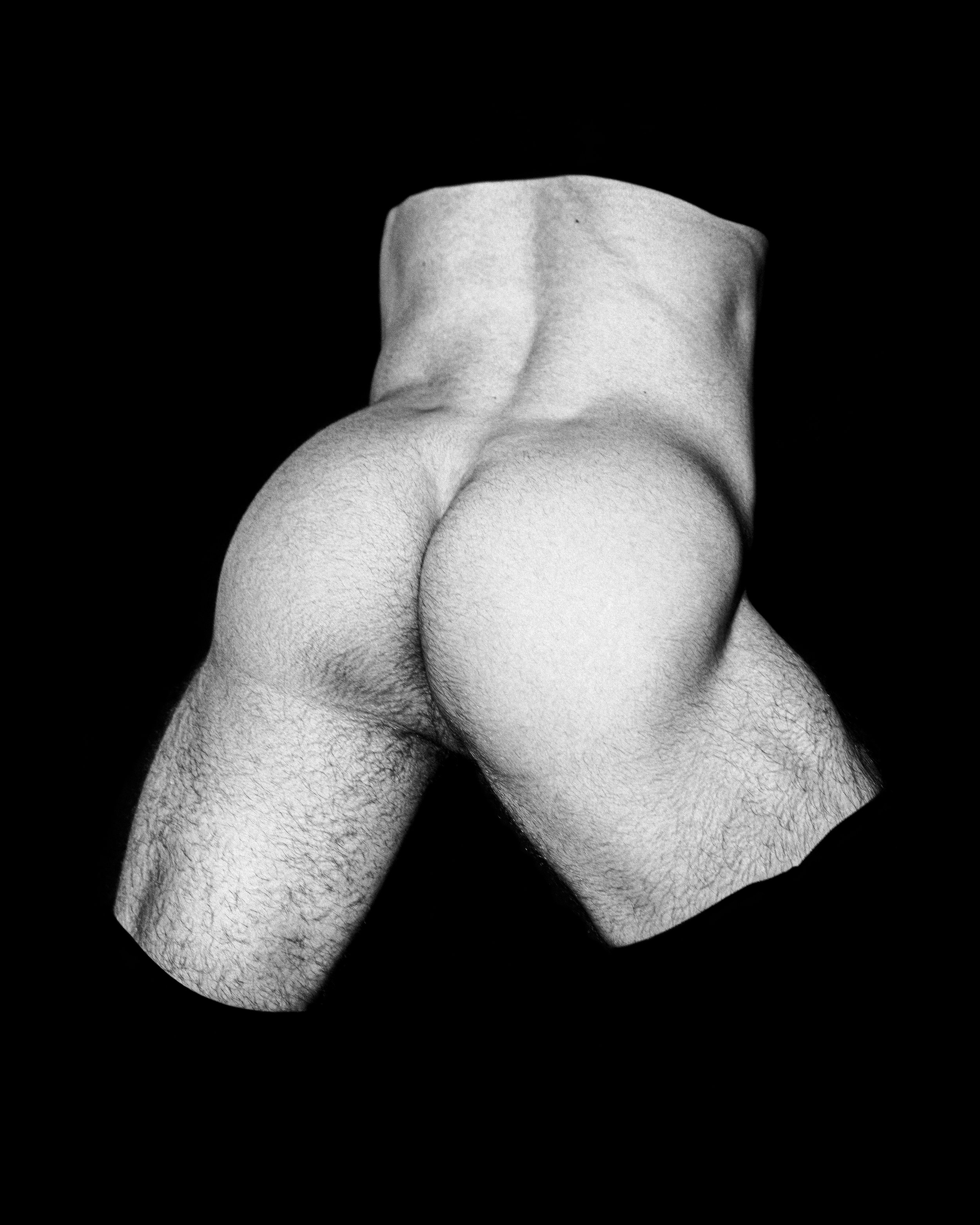Cole Witter is a Brooklyn-based interdisciplinary artist whose passion for performance informs his photographic study of self-portraiture. His themes explore spirituality, duality, the power of self-transformation, and the embrace of divine Queerness.
There’s majesty to your work. Whether self-portraiture or a collaboration with a dancer, your work always feels magical and never based in realism. Like a dream, your dancers appear to be frozen in the midst of a grand, sweeping gesture.
We all perceive the world and what’s around us in different ways, so I think of what I create as an alternate reality, as if it exists on the spiritual plane. I don’t like to think of my work as fantasy because that almost implies that it’s unattainable, and yet I feel that art in general taps into emotions that can’t be expressed through words. For me, movement makes those wordless emotions ever more noticeable and apparent. I threw myself into the dance world because it feels less centered around concrete forms of the ego and allows more room to play outside the lines. I love working with dancers and movers because of their ability to distill how it feels to exist in the present.
My role as the photographer and set designer is to build the worlds for dancers to exist in. I tend not to choreograph these photoshoots because the sets and lighting design are already such impactful variables; I prefer the dancers bring themselves into that space. Part of the process is just allowing the movement to happen and meeting them in these spontaneous moments of trust and levity.
All of your subjects in your work are nude. Has this impacted your entry into the artworld?
As an artist in the capital A-R-T world, I oftentimes find myself differentiating my work with these prewritten tags like movement or dance photographer, but I never realized how much these institutions and algorithms strive to influence an artist’s practice until my first solo show titled IN hIS IMAGE, in which every subject was nude. Advertising the show meant censoring the creativity of the work, lest I get shadowbanned on Instagram or Twitter. Elements that were natural to the human body, like pubic hair, couldn’t be made public online. There’s so much shame and control over the body that at some point, these restrictions do real harm to the creators and their communities. At what point will this stop? Where is the threshold? When younger artists look to institutions for validation or any sort of legitimacy within their fields, will they ever be more than just the lining in someone’s pockets?
It makes me think, is this what the institutions and social platforms want? To push transgressive artists out of the conversation? To no longer grant them space? Isn’t it weird that artists merely depicting the human body are even considered transgressive? Surely these people all flounder for Robert Mapplethorpe, so why don’t they do the same for contemporary artists? If curators decide to no longer show this work, how will we build a world for ourselves?
There’s really no need to give these institutions power. We have all the power. The conversations around emerging artist collectives and Web3.0 make me optimistic that artists will take control of their autonomy in the near future. I’ve found that those communities are much more inclusive and supportive of artists. NFTs are the most attractive of these new frontiers for the obvious reason — we can make a living from selling our work by ourselves. I admire my queer artist community in Web3.0, because they prioritize education, care, and the circulation of money and finance within fellow artist communities, meaning the majority of money made will always stay in the artists’ hands.
Our job as artists is to solve problems differently and creatively. If the assets we create are so valuable, why must our culture undervalue them? Now is the time for artists to bring more people on to their teams and into their communities, as advert monsters and corporate America lay the groundwork to suck it all back up again. We can’t allow them to control the narrative of these spaces and monetize it against us. If we start building a roadmap now of the future we want, we’ll discover that there’s enough for all of us.
There’s so much shame and control over the body that at some point, these restrictions do real harm to the creators and their communities. At what point will this stop? Where is the threshold?











